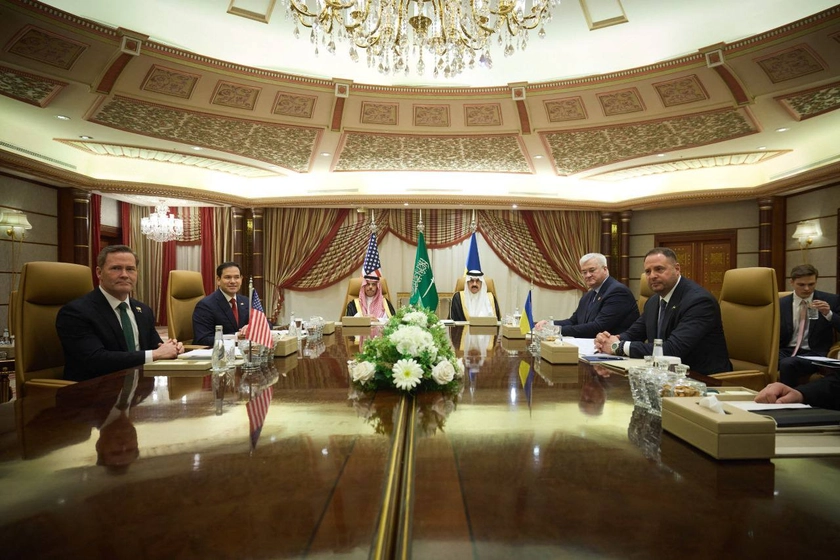Moldova’s Transnistrian territory is the scene of one of the last remaining “frozen conflict” in the contested space between the collective West and Russia. By the same token, it provides the Organization for Security and Co-operation in Europe (OSCE) with one of its last remaining claims to relevancy in conflict management and mediation.
Meanwhile, US-led Western policies are setting the stage for a ceasefire-in-place between Russia and Ukraine, apparently anticipating another frozen conflict. Some US diplomats and influential analysts suggest that the OSCE, in that case, could be called upon to help with observing and enforcing a ceasefire or monitoring the implementation of an armistice, potentially drawing on the model of the OSCE’s pre-2022 Special Monitoring Mission in Ukraine.
JOIN US ON TELEGRAM
Follow our coverage of the war on the @Kyivpost_official.
These suggestions go hand in hand with the view that the OSCE could provide a forum for rebuilding a European security architecture that would involve the West and Russia.
These ideas are all tentative at this stage but can be expected to gather momentum and be fleshed out if the current “stalemate” on the front persists. As long as the frontlines cut across Ukraine, however, stalemate means that Russia has won the war by annexing Ukrainian territories. In that case, the OSCE or any international organization would be called upon to stabilize and monitor the lines of territorial partition.
John Bolton’s Warning to Allies on How to Survive the Trump Rollercoaster
Any OSCE involvement in monitoring the armistice or facilitating contacts between the parties to the conflict would necessarily be based on a mandate to be negotiated with Russia. Wielding its statutory power, Moscow has invariably shaped the mandates in ways that limited the effectiveness of OSCE missions and left them vulnerable to Russian sabotage or blackmail. Moscow has acted as a strict constructionist in negotiating and implementing such mandates.
These have prescribed the parameters of OSCE missions in minute detail: authorized activities, equipment, size and composition of staff, terms of engagement, reporting up the chain, budget, political objectives, and conditions for the prolongation of mandates. Russia has, in each case, blocked the mandate’s adoption (“withheld consent”) until Western participants yielded to Moscow’s conditions, usually on the logic that having an ineffective and vulnerable mission was after all better than having none.
These practices have become tradition in the OSCE, compromising its two missions in Georgia (1998–2004 and 1992–2008), three missions in Ukraine (2014–22), and its mission in Moldova (1993 to date).
The OSCE’s Mission to Moldova labors under a mandate dating back to 1993, with a gradual build-up resulting from negotiations that Russia has shaped in accordance with its interests. The legacy of the mandate and negotiations empower Russia as a mediator (alongside the OSCE) between Chisinau and Tiraspol, require Chisinau to negotiate directly with Tiraspol (and Moscow behind Tiraspol) on a special status for Transnistria, and consign the United States and the European Union to the inferior status of observers in the “5+2” negotiation format.
The OSCE accepts Russia’s premise that a special status acceptable to Tiraspol (i.e., to Moscow) is a precondition to the withdrawal of Russian “peacekeeping” troops stationed in Moldova without Chisinau’s consent. Acceptance of this conditionality exempts Russia from the responsibility of wresting this territory from Moldova.
The OSCE has long failed to invoke Moldova’s neutrality as an argument in negotiations with Russia. Moscow has, nevertheless, not exempted the Mission to Moldova from the intimidation tactics it applies to the entire OSCE. Since 2021, Russia has approved the prolongation of this mission’s mandate at six-month intervals, instead of annually, and is hinting that future extensions are contingent on the mission striving to “revitalize” the 5+2 format.
The element of blackmail is barely hidden: “A real, measurable progress in the 5+2 format will secure the future of this Mission” (Security and Human Rights Monitor, June 30). The mandate is now set for another prolongation on Dec. 31.
Moldova’s government under President Maia Sandu no longer accepts the Russian-designed, OSCE-approved terms of negotiations regarding Transnistria. Any special status negotiated with Tiraspol and Moscow—or, alternatively, perpetual negotiations without acceptable results—would compromise Moldova’s course for EU membership.
The Moldovan government no longer pronounces the words “special status” or 5+2 negotiation format. At the OSCE’s year-end ministerial meeting on November 30 and December 1, for the second consecutive year, Moldovan Foreign Minister Nicu Popescu demanded the unconditional, complete withdrawal of Russian troops as a prerequisite to the peaceful resolution of this conflict.
Russia demonstrated its capacity to intimidate and suborn the OSCE at the 2023 year-end meeting. Nevertheless, officials within the organization and in some influential Western capitals are pondering the organization’s possible roles in the “aftermath” of Russia’s war against Ukraine. The notions of “end of this war” or “after the war” are themselves undefined and elusive in the age of hybrid wars.
Regardless, the OSCE is still seen as a “unique platform” for diplomatic interactions between the West and Russia, once the war in Ukraine winds down. Given its modus operandi by consensus, the OSCE could make it possible for Western powers in due course to move from isolating Russia to reactivating contacts through this platform, dialogue with Russia in the next stage, and ultimately a resigned acceptance of the new territorial status quo in Ukraine, short of its legal recognition.
Vladimir Socor is a Senior Fellow of the Washington-based Jamestown Foundation and its flagship publication, Eurasia Daily Monitor (1995 to date), where he writes analytical articles on a daily basis. An internationally recognized expert on the former Soviet-ruled countries in Eastern Europe, the South Caucasus, and Central Asia, he covers Russian and Western policies, focusing on energy, regional security issues, Russian foreign affairs, secessionist conflicts, and NATO policies and programs.
This piece is reprinted from Eurasia Daily Monitor Volume: 20 Issue: 187. See the original here.
The views expressed are the author’s and not necessarily of Kyiv Post.
You can also highlight the text and press Ctrl + Enter











